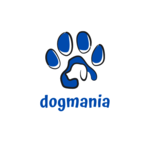The Skinny on Fat: Dispelling Myths
About Dietary Fats in Dog Food
When it comes to feeding our furry friends, the topic of dietary fats can be confusing. In this blog post, we will debunk common myths surrounding fats in dog food. Understanding the role of fats in your pet's diet is crucial for their overall health and well-being. Let's dive in and uncover the truth about dietary fats for dogs.
Dietary fats play a crucial role in the overall health and well-being of our canine companions. Despite their importance, fats in dog food have often been misunderstood and subjected to various myths and misconceptions. In this article, we will delve deeper into the world of dietary fats for dogs, debunking common myths and shedding light on the benefits they provide.
1. Understanding Dietary Fats:
Dietary fats are essential nutrients that provide a concentrated source of energy for dogs. They are a key component of a balanced diet, alongside proteins, carbohydrates, vitamins, and minerals. Fats serve various functions in the body, including:
- Energy production: Fats are a highly efficient energy source, providing more than twice the energy per gram compared to proteins and carbohydrates.
- Nutrient absorption: Certain vitamins, such as vitamins A, D, E, and K, are fat-soluble, meaning they require dietary fats for absorption.
- Healthy skin and coat: Fats play a vital role in maintaining healthy skin and a shiny coat. They help lubricate the skin, prevent dryness, and reduce inflammation.
- Cell membrane integrity: Fats are structural components of cell membranes, contributing to their stability and fluidity.
2. Debunking Myths About Dietary Fats:
Despite their importance, dietary fats in dog food have often been subject to myths and misconceptions. Let's address some of the most common myths:
- Myth 1: Fat-free diets are healthier for dogs:
While it's true that excessive fat intake can lead to obesity and related health issues, dogs require a certain amount of dietary fats for optimal health. Eliminating fats entirely from a dog's diet can deprive them of essential nutrients and compromise their overall well-being.
- Myth 2: High-fat diets cause pancreatitis:
While acute pancreatitis can be triggered by the consumption of high-fat meals, particularly in predisposed individuals, it's important to distinguish between dietary fats and specific dietary practices. Moderation is key when it comes to fat intake, and feeding dogs a balanced diet with appropriate fat levels can help mitigate the risk of pancreatitis.
- Myth 3: All fats are created equal:
Not all fats are the same, and the source and quality of dietary fats matter. Healthy fats, such as omega-3 and omega-6 fatty acids found in fish oil and flaxseed oil, offer numerous health benefits for dogs, including anti-inflammatory properties and support for heart health. On the other hand, excessive consumption of saturated fats and trans fats can have adverse effects on health.
3. Choosing the Right Fats for Your Dog:
When selecting dog food, it's essential to pay attention to the type and quality of fats listed in the ingredients. Look for sources of healthy fats, such as:
- Omega-3 fatty acids: Found in fish oil, flaxseed oil, and certain types of fish like salmon and sardines, omega-3 fatty acids are renowned for their anti-inflammatory properties and support for skin, coat, and joint health.
- Omega-6 fatty acids: While omega-6 fatty acids are essential for dogs, they should be balanced with omega-3 fatty acids to prevent an imbalance that can contribute to inflammation. Common sources include poultry fat, sunflower oil, and safflower oil.
- Monounsaturated fats: Found in sources like olive oil and avocado, monounsaturated fats provide a source of healthy energy and can support overall health and well-being.
- Medium-chain triglycerides (MCTs): MCTs, found in coconut oil, offer a readily available source of energy and can support digestion and cognitive function in dogs.
conclusion
In conclusion, dietary fats are an essential component of a balanced diet for dogs, providing energy, supporting nutrient absorption, and contributing to overall health and well-being. By understanding the role of fats in your dog's diet and selecting high-quality sources, you can ensure they receive the essential nutrients they need to thrive. Dispelling myths and misconceptions about dietary fats empowers dog owners to make informed choices when it comes to their pet's nutrition, ultimately leading to happier, healthier dogs.



leave me your thoughts here